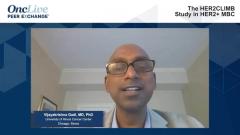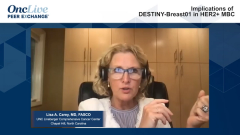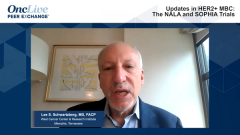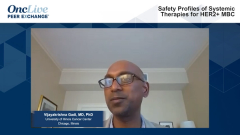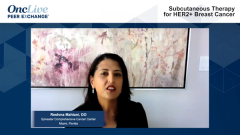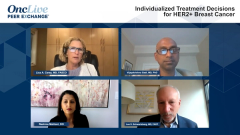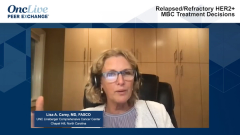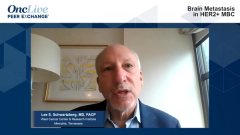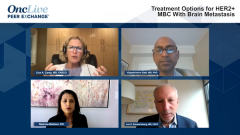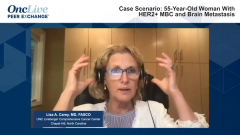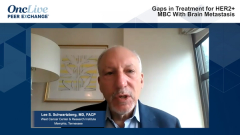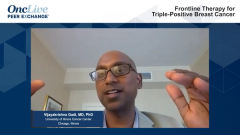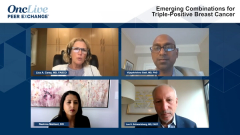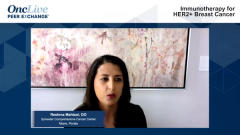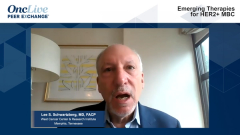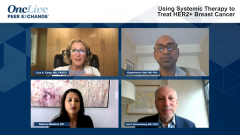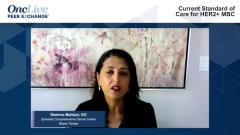
Relapsed/Refractory HER2+ MBC Treatment Decisions
Options available to treat patients with HER2-positive metastatic breast cancer following frontline therapy with T-DM1.
Episodes in this series

Lisa A. Carey, MD, FASCO: Let’s talk about the adjuvant setting and T-DM1 [trastuzumab emtansine] use. You have a patient who has residual disease, they get trastuzumab emtansine, and then they relapse. Do you skip trastuzumab emtansine in your second-line algorithm for patients who relapsed after trastuzumab emtansine, or only if they relapsed quickly or during treatment? Tell me how you guys approach those patients because we’re all facing them now.
Lee S. Schwartzberg, MD, FACP: For early relapse, I would skip and use the general principles we use for other subsets. However, if the patient’s exposure was greater than 12-months, I’d be comfortable reinitiating it in the second-line. The same goes for taxanes, adapting that principle we use, for example, in triple negative breast cancer.
Lisa A. Carey, MD, FASCO: Anybody else? Does that sound reasonable?
Reshma Mahtani, DO: I would agree. I think we’re going to increasingly start seeing these patients. We had the approval of trastuzumab emtansine in the adjuvant setting based on the KATHERINE trial in May of 2019, and as we get further away and start seeing these patients who have completed the year, we’re going to see more of these patients. We don’t have any direct data to point to in terms of what the best strategy is, but I agree with Lee’s comment of utilizing that 12-month period as the line in the sand.
Lisa A. Carey, MD, FASCO: Terrific.
Vijayakrishna Gadi, MD, PhD: I am probably not going to do a lot of trastuzumab emtansine recycling for complicated reasons. But I’m very open to recycling H and P [trastuzumab and pertuzumab], especially in ER-positive disease where we may not have had cotargeting with endocrine therapy for long enough, etc. So if there’s been a nice interval, I might use that. But the trastuzumab emtansine, to me, is a little less clear, and I might end up moving more quickly to other options, whether it’s tucatinib or even trastuzumab deruxtecan in that setting.
Lisa A. Carey, MD, FASCO: Would you never use trastuzumab emtansine, or you might sequence it later?
Vijayakrishna Gadi, MD, PhD: I might think about it later. But again, we have so many trials, so many options, and for some reason, I’m not sure that recycling the trastuzumab emtansine makes a lot of sense. I might be in the minority on this.
Lisa A. Carey, MD, FASCO: Yes.
Reshma Mahtani, DO: A clinical trial is always the right answer.
Lisa A. Carey, MD, FASCO: Yes, my own habit isn’t to avoid trastuzumab emtansine, but if there’s a short interval, to probably move it back.
Transcript Edited for Clarity


